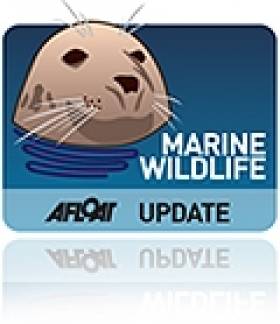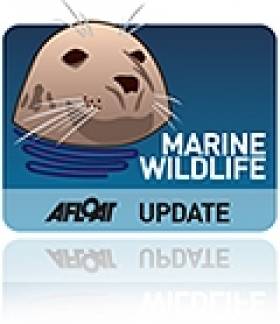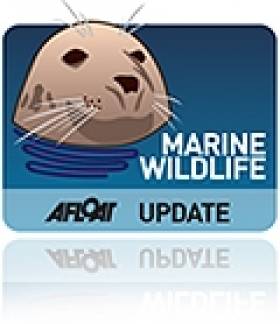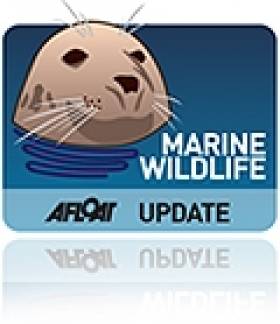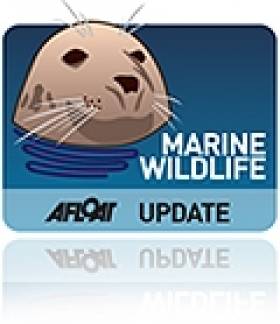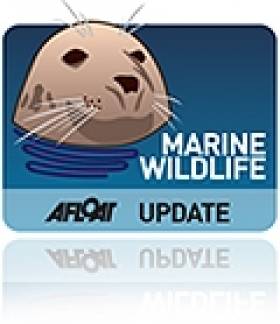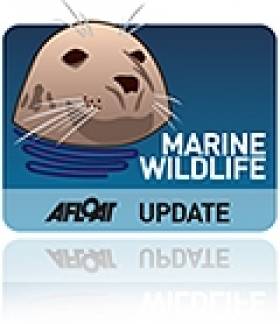Displaying items by tag: orca
#orca – Crews from commercial and Royal Navy vessels have started training for the Orca Ocean Watch Week, an initiative by the whale and dolphin conservation charity ORCA, that is being launched at Portsmouth International Port this month.
Between 25th July and 2nd August bridge crews are being asked to report all sightings of whales, dolphins and porpoises as they sail to and from Portsmouth International Port. The records they produce will help ORCA develop the clearest picture yet of just where the much loved marine mammals are living.
The enthusiastic team from ORCA have spent time training crews from a wide variety of operators, including the banana boats that come and go on a regular basis from the Caribbean and Central America. They've also spent time with the Royal Navy, briefing crews from Portsmouth based vessels.
The Royal Navy ships HMS Smiter, HMS Puncher, HMS Explorer and HMS Trumpeter will be sailing through the English Channel, down into the Northern Bay of Biscay and up into the Baltic Sea. These ships are among 11 vessels contributing to the activity from the 1st Patrol Boat Squadron that are operating all over Western Continental Europe and the British Isles.
Lieutenant Commander Phil Houghton of the 1st Patrol Boat Squadron said, "The Royal Navy and in particular 1PBS are delighted to be able to participate in OceanWatch 2015 and do what they can to support the better appreciation of the complex and vulnerable marine environment in which we operate. Only by understanding the animals and habitats around our local waters can we provide the appropriate protection for them."
Orca Ocean Watch Week will be launched on Monday 20th July by television wildlife expert Nigel Marven. Nigel will be joined at the new passenger terminal at Portsmouth International Port by a 50 foot, life-sized model of a blue whale, and school children eager to learn more about the variety of wildlife in the seas off Portsmouth.
By the time Ocean Watch Week is underway ORCA will have trained crews from over 20 vessels, including ferries, freight ships, cruise liners and small ships.
If you're interested in spotting these fantastic animals yourself, Brittany Ferries and ORCA offer Whale Watching mini cruises from Portsmouth, an increasingly popular trip across the Bay of Biscay, which is one of the most important habitats for whales and dolphins on the planet. ORCA is also working with operators at other ports along the South Coast and Scotland, attempting to get the widest coverage possible for its important survey.
Killer Whale Strands On Waterford Beach
#MarineWildlife - The Irish Whale and Dolphin Group (IWDG) reports on a killer whale stranding near Tramore in Co Waterford yesterday (Friday 30 January).
The five-metre-long female orca was described as being in "a very fresh condition" and was found to have very worn teeth, which points to malnutrition as a potential cause of death.
A post-mortem is scheduled to be carried out tomorrow by a team from the IWDG and Galway-Mayo IT.
The incident is the latest in a "disturbing high" rate of cetacean strandings around the Irish coast this January, with a total of 32 recorded across nine identifiable species.
While it's as yet unknown what has caused this spike in numbers, the recent severe weather systems coming from the Atlantic may be a factor in driving carcasses of animals that may have died of natural causes towards the Irish coast.
The IWDG has more on the story HERE.
Killer Whale Pod Nearing Its End Fear Experts
#MarineWildlife - A well-known killer whale pod often seen off the coasts of Scotland and Ireland is on the 'brink of extinction', as HeraldScotland reports.
Marine wildlife experts who have been monitoring the group for two decades say that no live calves have been recorded since their research began, and that the females of the group can no longer reproduce.
The orca pod, of which nine adults remain, is said to be genetically distinct from other killer whales in the North Atlantic, and bares closer relation to their cousins in Antarctic waters.
A spokesperson for the Hebridean Whale and Dolphin Trust described as "critical" the conservation status of the group.
"As sad as this is, the loss of this group has severe consequences, resulting in the loss of an evolutionary significant group of individuals," she added.
Killer Whales Surround Anglers in Lough Swilly
#MARINE WILDLIFE - The video above shows the moment when an angling boat was surrounded by a pod of killer whales at the mouth of Lough Swilly in Co Donegal.
Sea angler Kevin Doherty, whose boat was treated to the spectacle, told UTV News: "We knew ourselves at that moment we were going to witness something special."
Local wildlife experts say the orca family came from the Scottish Hebrides and as well known - but this is the first time the whole family group has been recorded together on Ireland's North coast.
Killer Whale Pair Spotted Near Kinsale
#MARINE WILDLIFE - Two killer whales have been spotted near Kinsale in recent weeks, the Irish Whale and Dolphin Group (IWDG) reports.
Two separate sightings of the orca pair near Barry's Head have been confirmed by the group, via photos provided by John Murphy and Richard Cussen on 5 March, during what is normally the 'low season' for whale watching in Ireland.
The pair comprises one adult male and a smaller whale which is likely an adult female. It is not yet known, however, whether the whales are new to Irish or Scottish waters.
According to the IWDG's Pádraig Whooley, it is "interesting that they have stayed close to their original position and suggests they may have found 'rich pickings'".
In other news, the Whale and Dolphin Roadshow will be at the Galway Shopping Centre from 22-25 March in time for the European Cetacean Society Conference.
The roadshow "is a fantastic opportunity to learn more about whales, dolphins and porpoise of the ASCOBANS region" that encompasses the Baltic Sea, Northeast Atlantic and Irish and North Seas.
North Atlantic Killer Whales Feeding on Sunfish Says IWDG
#MARINE WILDLIFE - The Irish Whale and Dolphin Group (IWDG) has recorded another first for the North Atlantic, with evidence showing that killer whales are feeding on ocean sunfish.
Mark Holmes of the Natural History Museum confirmed the presence of parasites unique to the sunfish found within the carcass of a female orca stranded in Doohooma in Co Mayo.
"These parasites did not originate from the whale's stomach, but came from the prey which it had eaten," said the IWDG's Conor Ryan.
"This was confirmed when the partially digested bones in the stomachs were eventually identified as those of a sunfish beak."
The discovery may explain a recent study of UK waters which found sunfish taking unusually deep dives, possibly to avoid cetaceans and other large predators.
Ireland Sees Largest Aggregation of Killer Whales
The Irish Whale and Dolphin Group (IWDG) has announced the largest aggregation of killer whales to date in Irish waters.
As many as a dozen killer whales, or orca, were spotted close to an Irish Naval Service vessel on patrol 30 miles off Tory Island in Co Donegal late last month.
According to Lt Cmdr Paddy Harkin of the LE Niamh, the killer whales were feeding among large shoals of mackerel that also attracted a large number of fishing vessels.
He added that the whales had apparently followed the mackerel from west of the Hebrides in north west Scotland, according to several fishing skippers - who placed their numbers at over 100.
The IWDG has more on the story (including photos) HERE.


























